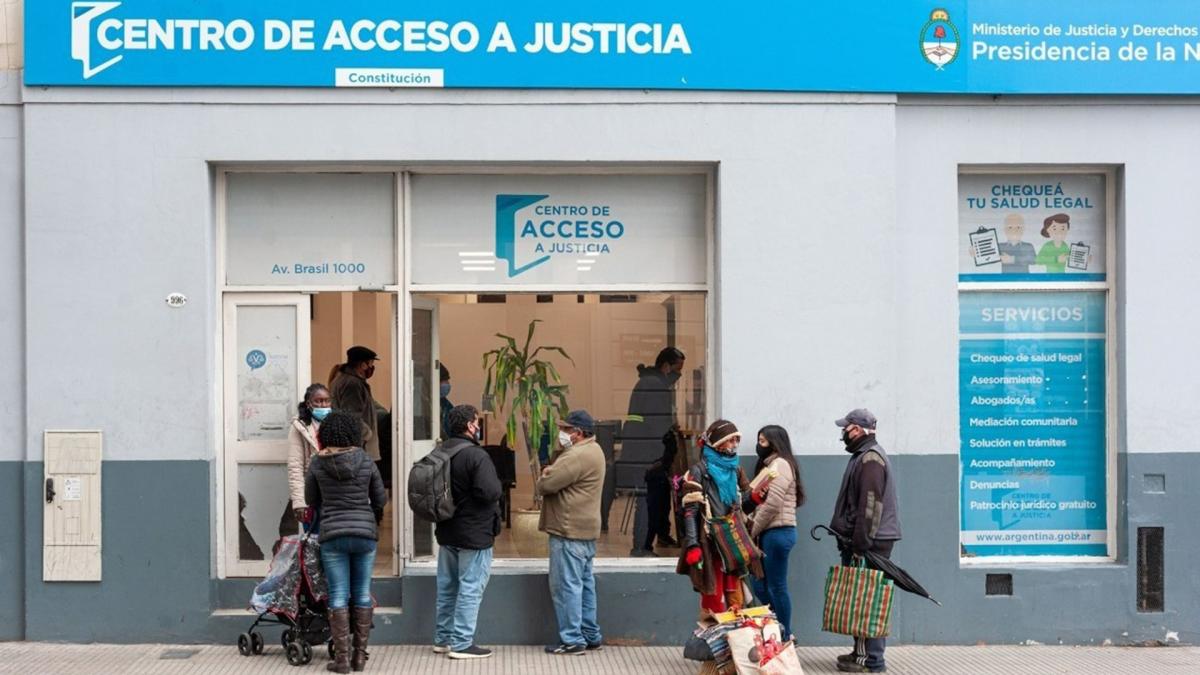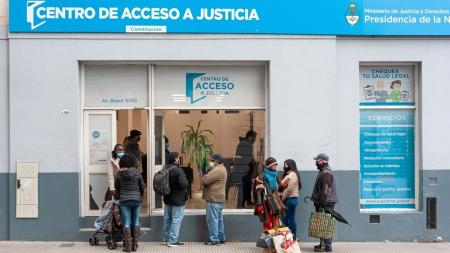 Photo: Presidency
Photo: Presidency
Inequality in our country is undoubtedly the main concern for those of us who work in the Government and at the service of the people. We see that employment and industry are growing, but that growth is unable to prevent the immoral widening of the income gap and the lack of distributive justice, there is growth that is not being distributed. In this scenario, tied up by the impact of the brutal external indebtedness that our government received and the effects of the pandemic, the management of the National Directorate for the Promotion and Strengthening of Access to Justice, under the Ministry of Justice and Human Rights, takes place. We assume a tremendously difficult situation, but we have always maintained a clear mission: to contribute to a humane coexistence in Argentina based on social justice.
We assumed the management of 92 Centers for Access to Justice (CAJ), distributed in different cities and localities of the country, just a few weeks before the world collapsed, in February 2020. We found ourselves with incomplete professional teams, poorly oriented and far from territorial and community conflicts, but who also suffered from very precarious working conditions. The measures of the first 90 days were emergency in the face of the health crisis: more than 600 face-to-face operations between March and May 2020 at the AMBA, more than 1,000 rural and casual workers who were able to return to their homes accompanied by our teams of professionals, the recovery of telephone attention for popular neighborhoods, the training and specialization of public agents in matters of family relations, gender violence and police abuse within the framework of mobility and work restrictions.
As of 2021 we were able to begin to take a new look at our policy and we took care of a vital issue for the country: community and individual legal and psychosocial assistance, to achieve the effectiveness of rights that are in the role of laws, but which in reality were not met.
We are committed to making these rights effective throughout the country, from the large urban centers and their peripheries to the indigenous peasant realities. We managed to bring the notion and practice of access to justice closer to the free organizations of the people, social movements, civil associations, churches of all faiths, clubs, unions, schools and public hospitals through the system of permanent itineraries. We planned and achieved the opening of 15 new CAJs with a federal distribution and geographic equity criteria: from the extreme north of our country, in Santa Victoria Este (Salta) to Ushuaia (Tierra del Fuego).
In summary, we work every day of our administration to bring Justice closer to the people.
We also committed ourselves in multiple public cases that require an active legal incidence from the national Executive Power. The most emblematic were Milagro Sala in Jujuy, María Ovando in Misiones and the Mapuche women imprisoned for defending their territory in Patagonia. We did it because behind these women, there are hundreds of thousands of others who see their rights trampled every day. Milagro, María and the Mapuche women are the emblem of just some of the injustices that women experience in Argentina.
We managed to get more than 200 beneficiaries of Potenciar Trabajo to join as Promoters of Access to Justice within the framework of the “More Justice in your neighborhood” Program, training in education and work to bring rights closer to their communities. We incorporated Line 137 as the Line of Access to Justice, which provides attention to the social and economic drama that involves non-compliance with the food quota, among other issues.
That was a seed that we planted and that is beginning to flourish: we worked hard on the enormous social problem of child support throughout 2023, advising mothers on the right to demand payment of child support, free legal sponsorship and compensation state against parental abandonment. We take this issue as our flag and we take it to the most important space of our democracy: we present three bills that we urgently need Congress to address. Mothers and children cannot wait one more day for food quota. This is an issue that will define the future of the country.
There are concrete challenges ahead: consolidating Free Legal Sponsorship as a right guaranteed by the State in matters of non-property civil proceedings, and the multiplication of fixed offices and rights brokers in every corner where necessary, are some of them.
The experience of these years convinced us of the importance of producing deep reforms to build a public and judicial administration prepared and effective to adequately solve the common problems and aspirations of the people who live in our country. Rights deserve their full exercise and an intelligent and sensitive State trained to guarantee them. That is what Access to Justice is all about: direct intervention from the public sphere to reverse the inequalities that shake and hurt our society.


